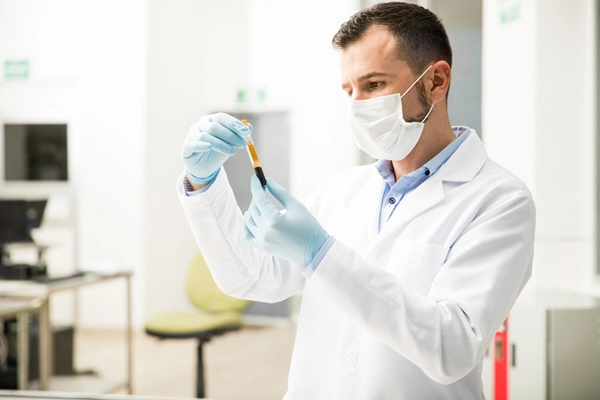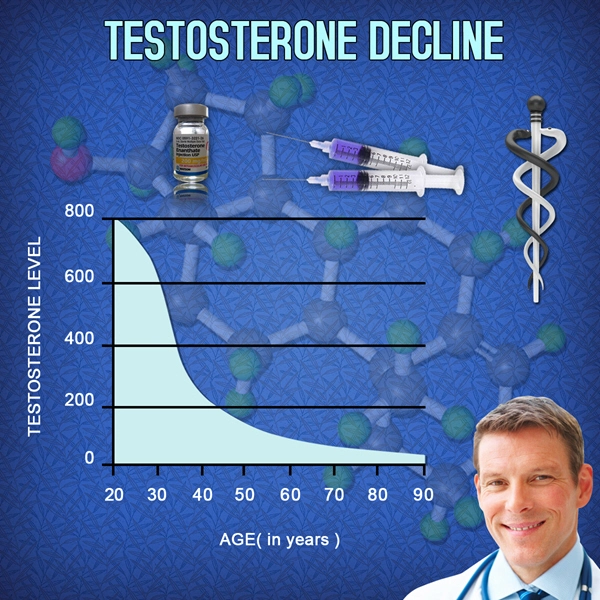Introduction to Chronic Pain and Testosterone
Chronic pain represents a significant health challenge for many American males, impacting their quality of life and daily functioning. Recent research has begun to explore the potential benefits of testosterone replacement therapy (TRT) in managing this debilitating condition. Testosterone, a hormone primarily associated with male health, plays a crucial role in various bodily functions, including pain modulation.
Understanding Testosterone Replacement Therapy
Testosterone Replacement Therapy is a medical intervention designed to address low testosterone levels in men, a condition known as hypogonadism. TRT can be administered through various methods, including injections, gels, patches, and pellets. The therapy aims to restore testosterone levels to a normal range, thereby improving symptoms associated with low testosterone, such as fatigue, depression, and reduced libido.
The Link Between Testosterone and Pain
Emerging studies suggest a complex relationship between testosterone levels and pain perception. Low testosterone has been linked to increased pain sensitivity and a higher incidence of chronic pain conditions. Conversely, maintaining optimal testosterone levels may help in reducing pain and improving pain tolerance. This connection has led researchers to investigate TRT as a potential therapeutic option for men suffering from chronic pain.
Clinical Evidence Supporting TRT for Chronic Pain
Several clinical trials have provided insights into the effectiveness of TRT in managing chronic pain. A study published in the *Journal of Pain Research* found that men receiving TRT reported significant reductions in pain intensity and improved physical function compared to those who did not receive the therapy. Another research highlighted in the *American Journal of Men's Health* demonstrated that TRT could decrease pain scores in men with hypogonadism and chronic pain, suggesting a direct benefit of the therapy on pain management.
Mechanisms of Action
The mechanisms by which TRT may alleviate chronic pain are multifaceted. Testosterone is known to influence the central nervous system, potentially reducing the perception of pain. Additionally, TRT may enhance muscle strength and bone density, which can indirectly contribute to pain relief by improving physical function and reducing the risk of injuries. Furthermore, testosterone's anti-inflammatory properties could play a role in mitigating pain associated with inflammatory conditions.
Considerations and Potential Risks
While TRT shows promise in managing chronic pain, it is essential to consider the potential risks and side effects associated with the therapy. These can include increased risk of cardiovascular events, sleep apnea, and prostate issues. Therefore, TRT should be administered under the close supervision of a healthcare provider, with regular monitoring of testosterone levels and overall health.
Patient Selection and Monitoring
Not all men with chronic pain are suitable candidates for TRT. It is crucial to diagnose hypogonadism accurately before initiating therapy. Comprehensive evaluation, including blood tests to measure testosterone levels, should be conducted. Once TRT is started, ongoing monitoring is necessary to assess its effectiveness and adjust the dosage as needed. Patients should also be educated about the potential benefits and risks of TRT to make informed decisions about their treatment.
Conclusion: The Future of TRT in Pain Management
The role of Testosterone Replacement Therapy in managing chronic pain among American males is an area of growing interest and research. While current evidence suggests that TRT can be a valuable tool in pain management, further studies are needed to fully understand its long-term effects and optimal use. As the medical community continues to explore this promising therapy, it holds the potential to significantly improve the quality of life for men suffering from chronic pain.
In summary, TRT offers a novel approach to managing chronic pain, with clinical evidence supporting its efficacy. However, careful patient selection, monitoring, and awareness of potential risks are essential to ensure safe and effective use of this therapy.

- TRT and Mental Health: Benefits, Risks, and Holistic Approaches for American Men [Last Updated On: March 2nd, 2025] [Originally Added On: March 2nd, 2025]
- Economic Impact of Testosterone Replacement Therapy in U.S. Healthcare [Last Updated On: March 16th, 2025] [Originally Added On: March 16th, 2025]
- Navigating Testosterone Replacement Therapy: Benefits, Insurance, and Methods for American Males [Last Updated On: March 17th, 2025] [Originally Added On: March 17th, 2025]
- American Men's Journey with Testosterone Replacement Therapy: Experiences and Insights [Last Updated On: March 17th, 2025] [Originally Added On: March 17th, 2025]
- Testosterone Replacement Therapy: Benefits, Risks, and Holistic Management for Young Men [Last Updated On: March 18th, 2025] [Originally Added On: March 18th, 2025]
- Optimizing TRT for American Men: Diet, Exercise, and Holistic Health Strategies [Last Updated On: March 19th, 2025] [Originally Added On: March 19th, 2025]
- Testosterone Replacement Therapy: Enhancing Male Health and Vitality in American Men [Last Updated On: March 19th, 2025] [Originally Added On: March 19th, 2025]
- TRT: Enhancing Bone Health in American Males with Hypogonadism [Last Updated On: March 19th, 2025] [Originally Added On: March 19th, 2025]
- Testosterone Replacement Therapy: Advances, Personalization, and Future in U.S. Men's Health [Last Updated On: March 20th, 2025] [Originally Added On: March 20th, 2025]
- Enhancing TRT: Nutrition, Exercise, Stress Management, and Holistic Health for American Men [Last Updated On: March 20th, 2025] [Originally Added On: March 20th, 2025]
- TRT Benefits and Prostate Health: Navigating Risks and Monitoring Strategies [Last Updated On: March 20th, 2025] [Originally Added On: March 20th, 2025]
- TRT Enhances Sleep Quality in American Males: Benefits, Mechanisms, and Considerations [Last Updated On: March 21st, 2025] [Originally Added On: March 21st, 2025]
- Testosterone Replacement Therapy: Dosage, Administration, and Monitoring for American Males [Last Updated On: March 22nd, 2025] [Originally Added On: March 22nd, 2025]
- TRT's Impact on Cardiovascular Health in American Men: Risks and Benefits [Last Updated On: March 22nd, 2025] [Originally Added On: March 22nd, 2025]
- Testosterone Replacement Therapy: Benefits, Risks, and Latest Research for American Men [Last Updated On: March 23rd, 2025] [Originally Added On: March 23rd, 2025]
- Cultural Attitudes Toward Testosterone Replacement Therapy Among American Men [Last Updated On: March 23rd, 2025] [Originally Added On: March 23rd, 2025]
- TRT: Enhancing Cognitive Function and Mental Clarity in American Men [Last Updated On: March 23rd, 2025] [Originally Added On: March 23rd, 2025]
- TRT: A Comprehensive Approach to Weight Management in American Males [Last Updated On: March 23rd, 2025] [Originally Added On: March 23rd, 2025]
- Testosterone Replacement Therapy: Benefits, Risks, and Managing Expectations for American Men [Last Updated On: March 24th, 2025] [Originally Added On: March 24th, 2025]
- TRT's Potential to Enhance Mood in American Males: A Comprehensive Overview [Last Updated On: March 24th, 2025] [Originally Added On: March 24th, 2025]
- TRT: A Promising Solution for Joint Health in American Males [Last Updated On: March 24th, 2025] [Originally Added On: March 24th, 2025]
- Hypogonadism in American Males: Understanding TRT Benefits and Risks [Last Updated On: March 24th, 2025] [Originally Added On: March 24th, 2025]
- Managing Testosterone Therapy Side Effects: Strategies for American Males [Last Updated On: March 25th, 2025] [Originally Added On: March 25th, 2025]
- TRT: Enhancing Cognitive Function in American Men - Benefits and Considerations [Last Updated On: March 25th, 2025] [Originally Added On: March 25th, 2025]
- Testosterone Replacement Therapy: Combating Fatigue in American Men [Last Updated On: March 25th, 2025] [Originally Added On: March 25th, 2025]
- TRT and Hair Loss: Understanding Risks and Management Strategies for American Men [Last Updated On: March 25th, 2025] [Originally Added On: March 25th, 2025]
- TRT's Impact on Vision: Benefits, Risks, and Research for American Males [Last Updated On: March 25th, 2025] [Originally Added On: March 25th, 2025]
- Testosterone Replacement Therapy: A Promising Approach to Combat Depression in American Males [Last Updated On: March 26th, 2025] [Originally Added On: March 26th, 2025]
- Low Libido in American Males: Understanding and Managing with TRT [Last Updated On: March 26th, 2025] [Originally Added On: March 26th, 2025]
- TRT Benefits for American Males: Enhancing Skin Health and Vitality [Last Updated On: March 26th, 2025] [Originally Added On: March 26th, 2025]
- Testosterone Replacement Therapy: Enhancing Muscle Mass in American Men [Last Updated On: March 26th, 2025] [Originally Added On: March 26th, 2025]
- TRT: Understanding Its Impact on Fertility and Alternatives for American Men [Last Updated On: March 26th, 2025] [Originally Added On: March 26th, 2025]
- TRT's Impact on Immune Function in American Men: A Comprehensive Overview [Last Updated On: March 26th, 2025] [Originally Added On: March 26th, 2025]
- Exploring Testosterone Replacement Therapy: Benefits, Risks, and Considerations for Aging Males [Last Updated On: March 26th, 2025] [Originally Added On: March 26th, 2025]
- Choosing the Right Clinic for Testosterone Replacement Therapy: A Comprehensive Guide [Last Updated On: March 26th, 2025] [Originally Added On: March 26th, 2025]
- TRT: Enhancing Respiratory Health in American Men with Hypogonadism [Last Updated On: March 27th, 2025] [Originally Added On: March 27th, 2025]
- TRT's Impact on Liver Health: Risks and Monitoring for American Men [Last Updated On: March 27th, 2025] [Originally Added On: March 27th, 2025]
- TRT Enhances Injury Recovery in American Males: Benefits and Risks [Last Updated On: March 27th, 2025] [Originally Added On: March 27th, 2025]
- Testosterone Replacement Therapy: Monitoring, Adjustments, and Lifestyle for Optimal Health [Last Updated On: March 27th, 2025] [Originally Added On: March 27th, 2025]
- TRT's Impact on Digestive Health: Benefits, Risks, and Considerations for American Men [Last Updated On: March 27th, 2025] [Originally Added On: March 27th, 2025]
- TRT and Diabetes in American Men: Benefits, Risks, and Lifestyle Integration [Last Updated On: March 27th, 2025] [Originally Added On: March 27th, 2025]
- Testosterone Replacement Therapy: Costs, Benefits, and Considerations for American Men [Last Updated On: March 27th, 2025] [Originally Added On: March 27th, 2025]
- Testosterone Replacement Therapy: Enhancing Life with Lifestyle Changes for American Males [Last Updated On: March 27th, 2025] [Originally Added On: March 27th, 2025]
- TRT: Enhancing Stamina and Vitality in American Males with Hypogonadism [Last Updated On: March 28th, 2025] [Originally Added On: March 28th, 2025]
- TRT: Enhancing Emotional Well-being in American Men with Hypogonadism [Last Updated On: March 28th, 2025] [Originally Added On: March 28th, 2025]
- Testosterone Replacement Therapy: Benefits, Risks, and Methods for American Men [Last Updated On: March 28th, 2025] [Originally Added On: March 28th, 2025]
- TRT: A Promising Solution for Stress Management in American Males [Last Updated On: March 29th, 2025] [Originally Added On: March 29th, 2025]
- TRT Side Effects: Acne, Fertility Impact, Cardiovascular Risks, and More [Last Updated On: March 30th, 2025] [Originally Added On: March 30th, 2025]
- Testosterone Replacement Therapy: Boosting Confidence and Quality of Life in American Males [Last Updated On: March 30th, 2025] [Originally Added On: March 30th, 2025]
- TRT and Blood Pressure: Monitoring and Managing Cardiovascular Health in American Men [Last Updated On: March 30th, 2025] [Originally Added On: March 30th, 2025]
- TRT's Impact on Kidney Function: Risks, Benefits, and Monitoring for American Males [Last Updated On: March 30th, 2025] [Originally Added On: March 30th, 2025]
- TRT's Impact on Cholesterol Levels in American Males: Monitoring and Management Strategies [Last Updated On: March 31st, 2025] [Originally Added On: March 31st, 2025]
- Testosterone Replacement Therapy: Benefits, Risks, and Optimization for American Males [Last Updated On: March 31st, 2025] [Originally Added On: March 31st, 2025]
- TRT's Impact on Blood Sugar: Insights for American Men [Last Updated On: April 1st, 2025] [Originally Added On: April 1st, 2025]
- TRT's Impact on Thyroid Function in American Men: A Comprehensive Analysis [Last Updated On: April 5th, 2025] [Originally Added On: April 5th, 2025]
- TRT: Enhancing Athletic Performance in American Males - Benefits and Risks [Last Updated On: April 8th, 2025] [Originally Added On: April 8th, 2025]
- Testosterone Replacement Therapy: Benefits, Allergic Risks, and Management Strategies [Last Updated On: April 8th, 2025] [Originally Added On: April 8th, 2025]
- Maximizing TRT Benefits: Integrating Therapy with Lifestyle and Medical Treatments for American Males [Last Updated On: April 9th, 2025] [Originally Added On: April 9th, 2025]
- TRT's Impact on Male Fertility: Risks, Reversibility, and Alternatives [Last Updated On: April 9th, 2025] [Originally Added On: April 9th, 2025]
- TRT's Impact on Hearing Health: Insights and Considerations for American Males [Last Updated On: April 9th, 2025] [Originally Added On: April 9th, 2025]
- Testosterone Replacement Therapy: Understanding and Interpreting Lab Results for Optimal Treatment [Last Updated On: April 10th, 2025] [Originally Added On: April 10th, 2025]
- TRT's Impact on Dental Health: Risks, Benefits, and Care Strategies for American Men [Last Updated On: April 10th, 2025] [Originally Added On: April 10th, 2025]
- TRT's Impact on Nail Health: Benefits and Challenges for American Men [Last Updated On: April 11th, 2025] [Originally Added On: April 11th, 2025]
- TRT: Enhancing Eye Health in American Men Through Hormone Therapy [Last Updated On: April 12th, 2025] [Originally Added On: April 12th, 2025]
- Traveling with TRT: A Comprehensive Guide for American Men [Last Updated On: April 12th, 2025] [Originally Added On: April 12th, 2025]
- TRT's Impact on Social Life: Boosting Confidence and Engagement in American Males [Last Updated On: April 13th, 2025] [Originally Added On: April 13th, 2025]
- Legal Aspects of Testosterone Replacement Therapy for American Males: A Comprehensive Guide [Last Updated On: April 15th, 2025] [Originally Added On: April 15th, 2025]
- TRT's Impact on Hand Health: Benefits and Risks for American Men [Last Updated On: April 15th, 2025] [Originally Added On: April 15th, 2025]
- Testosterone Replacement Therapy: Benefits and Social Implications for American Males [Last Updated On: April 16th, 2025] [Originally Added On: April 16th, 2025]
- Exploring the Psychological Impacts of Testosterone Replacement Therapy for American Men [Last Updated On: April 17th, 2025] [Originally Added On: April 17th, 2025]
- TRT: Boosting Work Performance and Vitality in American Males [Last Updated On: April 17th, 2025] [Originally Added On: April 17th, 2025]
- TRT's Impact on Artistic Expression in American Males: Creativity and Risks [Last Updated On: April 17th, 2025] [Originally Added On: April 17th, 2025]
- TRT's Impact on Neck Health: Considerations for American Men [Last Updated On: April 17th, 2025] [Originally Added On: April 17th, 2025]
- Ethical Considerations in Testosterone Replacement Therapy for American Men [Last Updated On: April 18th, 2025] [Originally Added On: April 18th, 2025]
- TRT's Impact on Chest Health: Benefits, Risks, and Management in American Men [Last Updated On: April 19th, 2025] [Originally Added On: April 19th, 2025]
- TRT Benefits for American Males: Enhancing Foot Health and Mobility [Last Updated On: April 19th, 2025] [Originally Added On: April 19th, 2025]
- TRT's Impact on Back Health in American Males: Benefits and Considerations [Last Updated On: April 20th, 2025] [Originally Added On: April 20th, 2025]



List of USA state clinics - click a flag below for blood testing clinics.
Word Count: 610



















































